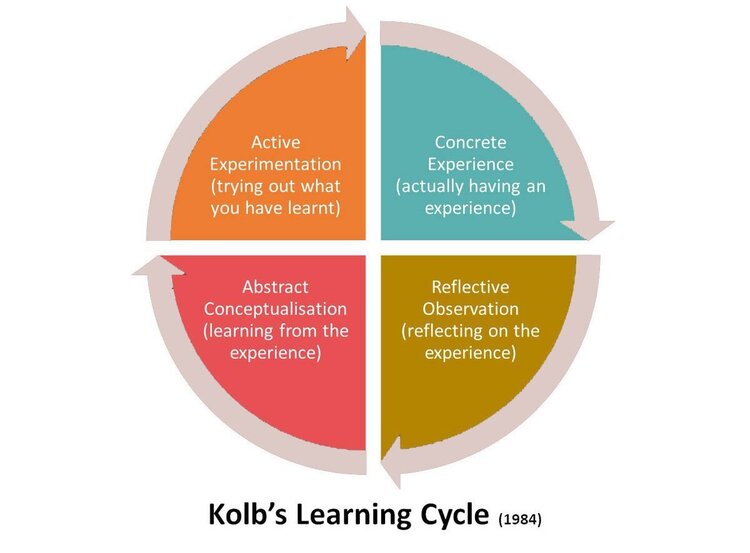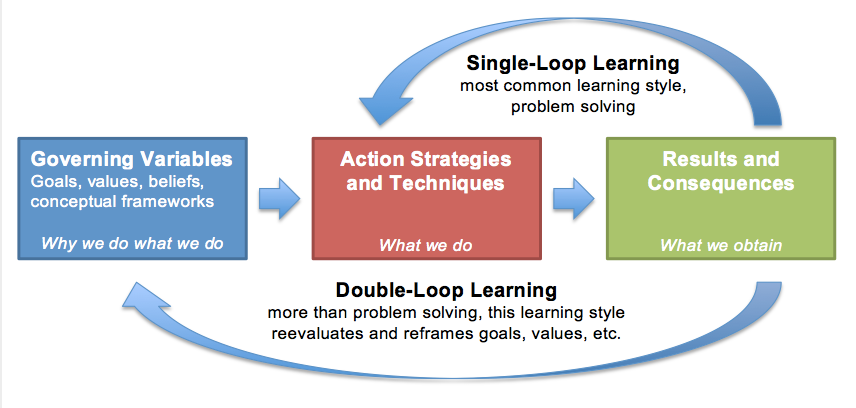Self-reflection: how to learn from your mistakes and be happy
Arguing to the bitter end, giving up, stepping on the same rake twice - if any of this is familiar to you, think about developing the skill of self-reflection. We tell you how to develop it and why it is the main skill in learning.

What self-reflection is
Each person reflects on his/her life, actions and his own development, without even realising it. But only those whom asterfully use the skill of self-reflection learn from their experience and learn from their own mistakes.
The concept of reflection as a conscious knowledge of oneself appeared in ancient Greece. Socrates believed that self-knowledge is the most important task of man. Plato associated the concept of reflection with prudence - knowledge of oneself. Later, John Locke defined reflection as the basis of life experience that helps a person develop.
Self-reflection is the ability to understand yourself. Observe your own actions, feelings and emotions from the outside and draw conclusions based on them in order to move on, constructively living through various life events. With a developed skill of self-reflection, you control your thoughts, not they control you.
Benefits of Self-Reflection
According to a Harvard Business School study, if employees reflected on lessons learned for 15 minutes at the end of the day, after 10 days they performed 23% better than those who did not reflect. A British study confirms this: people who think about their plan for the day on the way to work are happier, more productive and less likely to burn out.
The skill of self-reflection helps:
Self-reflection is the basis of learning and education
In addition to psychology, self-reflection is used in education. The skill helps specialists reach new levels of professional and personal development.
Kolb cycle. The role of self-reflection in the learning process was described by the American educational theorist DavidKolb in his model in the 1980s. Kolb argued that we learn when we have a concrete experience and, through reflection or reflection, transform it into a theoretical concept. We are trying this concept in practice, updating the “Kolb cycle”.
If you are used to learning from learning theory, pay attention to this model. The learning cycle can begin at any stage, but it is the acquisition of experience, not theory, that is the starting point of development.
Reasons of why so few people develop self-reflection?
Many people do not know how to contemplate and do not understand how to do it. Others don't like the process, tend to take actions, or don't see quick results of reflection. Others don't like the process of reflection which requires to do things one may not like: slow down, assume an air of ignorance and curiosity, tolerate clutter and inefficiency, take personal responsibility. Reflection can lead to valuable discoveries and breakthroughs, or cause feelings of discomfort,vulnerability, and defensiveness. Sometimes it's hard to see immediate payback and results, but it's slowing down and thinking that gets you ahead.
Many people are determined to act like football goalkeepers. The researchers studied the actions of professional goalkeepers during penalties and found that goalkeepers who remain in the center of the goal have a 33% chance of hitting the ball. And only 6% if they jump right or left. The fact is that goalkeepers feel better when they “do something”. The same thing happens with reflection - it seems that it is wrong to stand still.
There is another interesting method related to self-reflection. It is called Argyris learning loop. In Chris Argyris' theory of double-loop learning, self-reflection is a trigger that helps to reach a new level of awareness of one's competencies and actions.
The single loop is the basic form of learning. You fix mistakes and learn to solve similar problems a little better in the future. Often, corporate or professional training programs are built around a single loop—correcting errors. Because of this, skilled professionals can stay put in professional development for years. According to Argyris, they lack the skill of self-reflection to conduct a soul-searching and find new ways to solve a problem or abandon them.
The double Loop - learning when you think about the value of certain rules, regulations and goals. Simply put, you are making the transition from stereotypical to freer thinking. According to Argyris, it is possible to move to the second level of learning only with developed skills of self-reflection.
Our beliefs influence the data we choose the next time we make decisions. Therefore, reflection plays a key role in the process of thinking and making decisions in the face of limited data. By reflecting on your beliefs, you can see the big picture and make better decisions.
Each person reflects on his/her life, actions and his own development, without even realising it. But only those whom asterfully use the skill of self-reflection learn from their experience and learn from their own mistakes.
The concept of reflection as a conscious knowledge of oneself appeared in ancient Greece. Socrates believed that self-knowledge is the most important task of man. Plato associated the concept of reflection with prudence - knowledge of oneself. Later, John Locke defined reflection as the basis of life experience that helps a person develop.
Self-reflection is the ability to understand yourself. Observe your own actions, feelings and emotions from the outside and draw conclusions based on them in order to move on, constructively living through various life events. With a developed skill of self-reflection, you control your thoughts, not they control you.
Benefits of Self-Reflection
According to a Harvard Business School study, if employees reflected on lessons learned for 15 minutes at the end of the day, after 10 days they performed 23% better than those who did not reflect. A British study confirms this: people who think about their plan for the day on the way to work are happier, more productive and less likely to burn out.
The skill of self-reflection helps:
- understand your mistakes and the reasons for bad experience;
- identify strengths, weaknesses, values and priorities;
- learn to make the right decisions;
- unleash your potential;
- understand other people;
- get rid of emotional attachments and obstacles;
- see problems in the early stages;
- change character.
Self-reflection is the basis of learning and education
In addition to psychology, self-reflection is used in education. The skill helps specialists reach new levels of professional and personal development.
Kolb cycle. The role of self-reflection in the learning process was described by the American educational theorist DavidKolb in his model in the 1980s. Kolb argued that we learn when we have a concrete experience and, through reflection or reflection, transform it into a theoretical concept. We are trying this concept in practice, updating the “Kolb cycle”.
If you are used to learning from learning theory, pay attention to this model. The learning cycle can begin at any stage, but it is the acquisition of experience, not theory, that is the starting point of development.
Reasons of why so few people develop self-reflection?
Many people do not know how to contemplate and do not understand how to do it. Others don't like the process, tend to take actions, or don't see quick results of reflection. Others don't like the process of reflection which requires to do things one may not like: slow down, assume an air of ignorance and curiosity, tolerate clutter and inefficiency, take personal responsibility. Reflection can lead to valuable discoveries and breakthroughs, or cause feelings of discomfort,vulnerability, and defensiveness. Sometimes it's hard to see immediate payback and results, but it's slowing down and thinking that gets you ahead.
Many people are determined to act like football goalkeepers. The researchers studied the actions of professional goalkeepers during penalties and found that goalkeepers who remain in the center of the goal have a 33% chance of hitting the ball. And only 6% if they jump right or left. The fact is that goalkeepers feel better when they “do something”. The same thing happens with reflection - it seems that it is wrong to stand still.
There is another interesting method related to self-reflection. It is called Argyris learning loop. In Chris Argyris' theory of double-loop learning, self-reflection is a trigger that helps to reach a new level of awareness of one's competencies and actions.
The single loop is the basic form of learning. You fix mistakes and learn to solve similar problems a little better in the future. Often, corporate or professional training programs are built around a single loop—correcting errors. Because of this, skilled professionals can stay put in professional development for years. According to Argyris, they lack the skill of self-reflection to conduct a soul-searching and find new ways to solve a problem or abandon them.
The double Loop - learning when you think about the value of certain rules, regulations and goals. Simply put, you are making the transition from stereotypical to freer thinking. According to Argyris, it is possible to move to the second level of learning only with developed skills of self-reflection.
Our beliefs influence the data we choose the next time we make decisions. Therefore, reflection plays a key role in the process of thinking and making decisions in the face of limited data. By reflecting on your beliefs, you can see the big picture and make better decisions.

